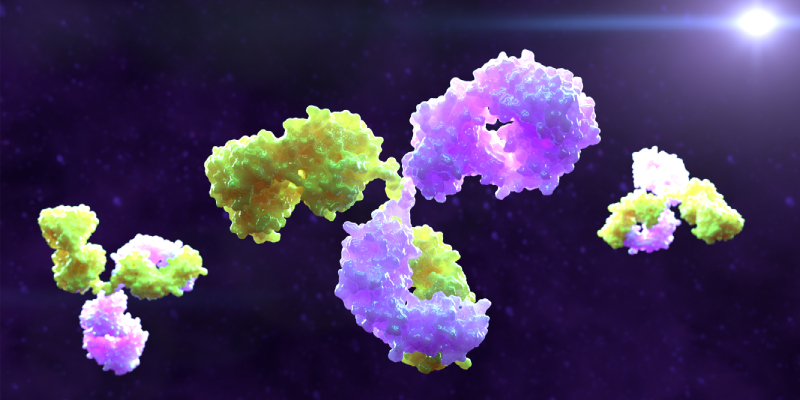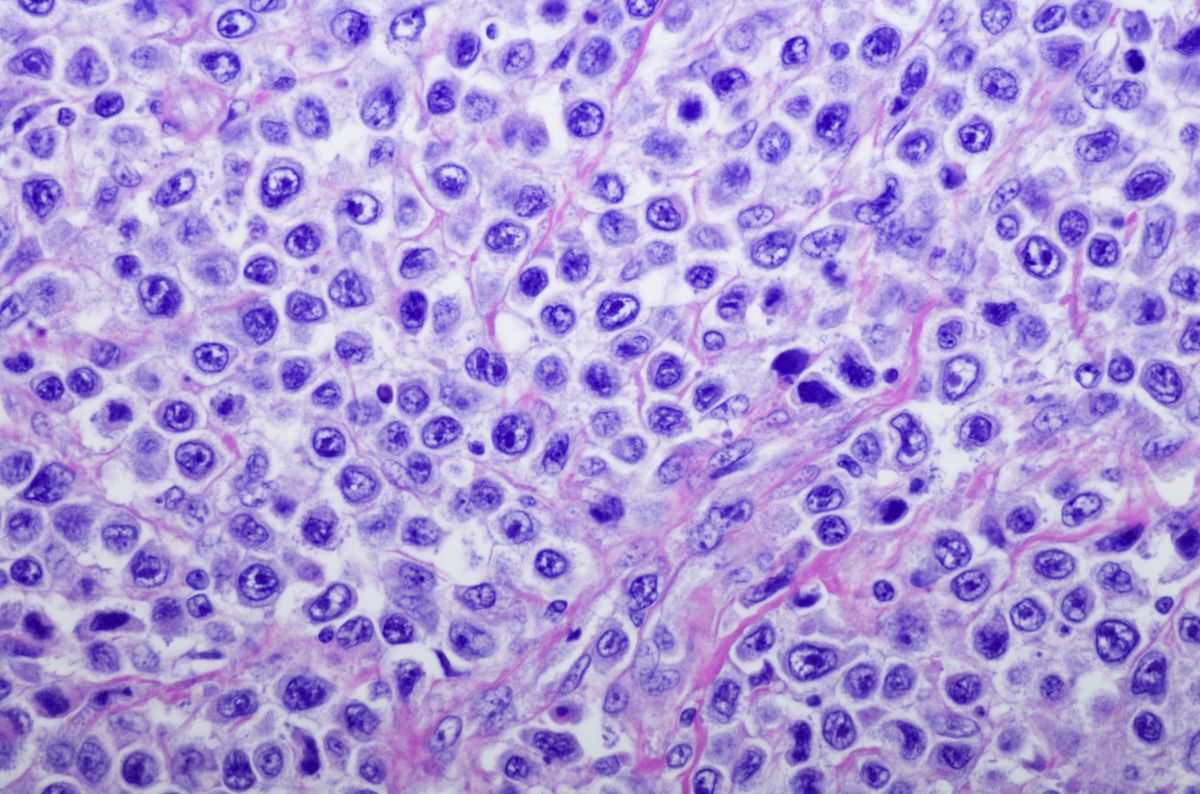
Epcoritamab with rituximab plus lenalidomide “showed potent antitumor activity and a manageable safety profile” in a large population of patients with relapsed or refractory follicular lymphoma (FL), according to data from the EPCORE NHL-2 trial.
Reid Merryman, MD, of the Dana-Farber Cancer Institute and colleagues conducted the study. They presented the pooled analyses of cohorts 2a and 2b of the ongoing phase I/II trial during the 2023 American Society of Clinical Oncology Annual Meeting.
Epcoritamab previously “demonstrated impressive single-agent antitumor activity and a manageable safety profile” in patients with relapsed or refractory FL, the study’s authors wrote. The bispecific antibody also “shows promise combined with standards of care,” according to Dr. Merryman and colleagues.
Patients received subcutaneous epcoritamab 48 mg with rituximab plus lenalidomide for twelve cycles. In cohort 2a, patients received epcoritamab once weekly in cycles one through three, once every two weeks in cycles four through nine, and once every four weeks after cycle 10. In cohort 2b, patients received it once weekly in cycles one and two, and once every four weeks after cycle three for at least two years.
As of October 31, 2022, the researchers reported that 109 patients with relapsed or refractory FL received epcoritamab 48 mg with rituximab plus lenalidomide. The median patient age was 65 years old. Most patients (59%) had only one prior treatment, while 61% had stage IV disease. Nearly all patients had received alkylating agents (92%) and 62% had received anthracyclines. Of the 109 patients, two previously received chimeric antigen receptor T-cell therapy.
Most patients (82%) remained on treatment at a median follow-up of 8.8 months (range, 1.2-18.5). Cytokine release syndrome (CRS) and neutropenia, both reported in 48% of patients, were the two most common treatment-emergent adverse events (AEs). Other common treatment-emergent AEs included injection site reactions in 38% of patients and fatigue in 33%. CRS events of grade 1 or 2 occurred in 46% of patients, while CRS events of grade 3 occurred in 2%. Immune effector cell-associated neurotoxicity syndrome of grade 1 or 2 occurred in two patients and resolved.
The overall response rate (ORR) was 97% in the 101 patients who were evaluable for efficacy. A complete metabolic response (CMR) occurred in 86% of patients.
“Notably, [patients] achieved higher ORR/CMR rates with epcoritamab [with rituximab plus lenalidomide versus] their immediate prior [treatment] line (ORR, 97% vs 85%; CMR, 86% vs 60%),” Dr. Merryman and colleagues wrote.
The estimated six-month progression-free survival rate was 93%. In the patients who had early progression after initial treatment and received the triplet as a second-line therapy, the ORR was 95% and the CMR was 95%.
The researchers plan to evaluate the triplet in a separate cohort of patients who had early progression of disease. The combination is also being studied in the phase III EPCORE FL-1 trial.
“Epcoritamab [plus rituximab plus lenalidomide] showed potent antitumor activity and a manageable safety profile in a large [relapsed or refractory] FL population,” Dr. Merryman and colleagues concluded. “Encouraging responses were seen in [patients] with high-risk disease, suggesting epcoritamab [subcutaneous] may abrogate negative effects of high-risk features.”
Reference
Merryman R, Belada D, Sureda A, et al. Epcoritamab + R2 regimen and responses in high-risk follicular lymphoma, regardless of POD24 status. Abstract #7506. Presented at the 2023 American Society of Clinical Oncology Annual Meeting; June 2-6, 2023; Chicago, Illinois.






 © 2025 Mashup Media, LLC, a Formedics Property. All Rights Reserved.
© 2025 Mashup Media, LLC, a Formedics Property. All Rights Reserved.